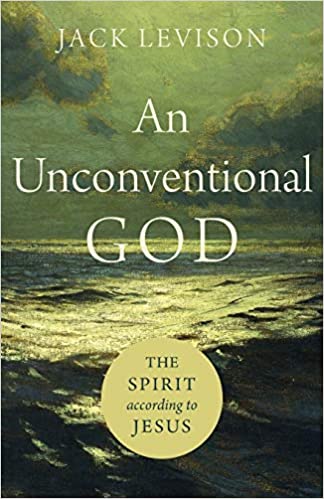BEN: A fellow John Wesley Fellow, Beth Sheppard did her dissertation on the forensic rhetoric of the Fourth Gospel, including the term parakletos which she shows in this case to refer to a legal advocate or counselor who is preoccupied with the truth, and nothing but the truth about Jesus and salvation. I doubt that the usage in the Farewell discourses varies from these meanings, and it certainly comports with the Synoptic idea that when the disciples are brought on trial the Spirit will give them the words to testify. I wondered if you had seen her work and what you think?
JACK: I have not seen Beth’s work on this, and it is not in our Bridwell Library (if it is published), but I do not tend to think of the Paraclete in primarily forensic terms. The Spirit teaches—and teaches some more. Yes, the Spirit functions forensically in the cosmic drama between light and darkness, but the gospel itself is the product of a patient teacher, too. These functions, of course, are not mutually exclusive.
BEN: I like your stress on study devoid of the Spirit and Spirit devoid of learning is not what Jesus is advocating in John. My old seminary prof used to say wine without wineskins cannot be preserved, kept, saved. But wineskins (i.e. that which gives it shape—i.e. learning) without the wine quenches no one, refreshes no one. It seems at times in Protestantism we’ve gone to one or the other extreme on this, even to the point of a strong anti-intellectual bias against ‘too much learning’ in the church. But this was never the attitude of Jesus and the rabbis. Where and how do you think the Gospel of John strikes the balance between erudition and spiritual experience? You are certainly right that the Gospel tradition stresses that those who reject Jesus do not receive the Spirit of truth. Jesus and the Spirit go together, and indeed the Spirit speaks about and leads one into the truth about Jesus
JACK: In chapter nine of An Unconventional God, titled “Spirit and Inspired Memories,” I lay out the work of the Holy Spirit in enlivening the memory of Jesus. In a nutshell, the work of the Paraclete, the Holy Spirit, is to lead the disciples into a full understanding of Jesus in light of the Old Testament. Twice this happens in the Fourth Gospel: at the triumphal entry and the saying about destroying the temple. In both instances, the disciples did not understand what happened or was said while Jesus was alive. But in both instances, as well, they came to understand what he did and said, and they did so, in both cases, in light of the Old Testament. If there is a primary work of the Holy Spirit, then, it is to help believers to understand Jesus better by putting his actions and sayings in the context of the Old Testament. There you have it: education and inspiration in perfect balance. It is lovely, just lovely to glimpse.













